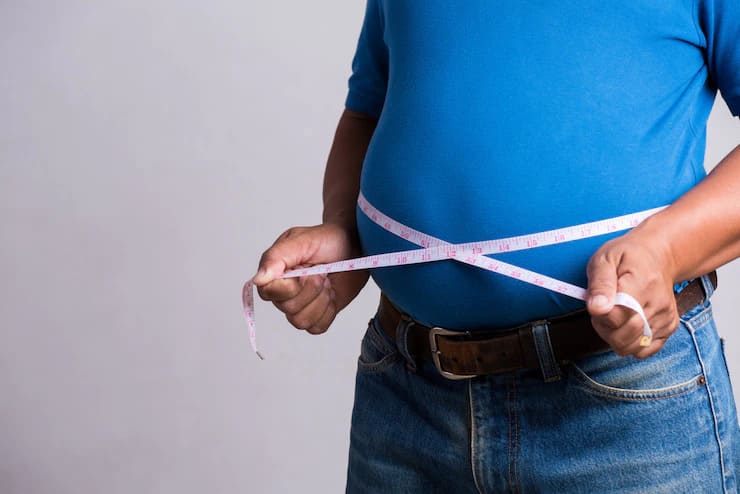Obesity is defined as an abnormal condition in which a large surplus of fats is stored within the body. Obesity is associated with higher possibilities for serious diseases, such as cancer, heart disease, and type 2 diabetes.
Consuming more calories than you burn in your daily activities or exercising for a long period of time can lead to obesity. Over time, these extra calories keep on adding, leading to weight gain.
But it’s not necessarily just calorie intake and or a sedentary lifestyle. While these are certain causes of obesity, there are also uncontrollable causes.
While talking about how obesity affects our bodies, we frequently hear about cardiovascular diseases and diabetes. Nevertheless, obesity issues could badly affect your musculoskeletal system. It results in enormous strain and mechanical stress on your joints and bones and thus develops some debilitating muscular problems.
WHY CHOOSE SPECIALTY CARE CLINICS FOR TREATMENT?
If you are obese and suffering from hips, knees and lower back problems. For better treatment visit Specialty Care Clinics. We provide the best urgent care services
- There are surgical and non-surgical treatments available for obesity, hips, knees and lower back problems.
- Our doctors first consider non-surgical treatments. If you need surgery, see if minimally invasive surgery is right for you.
- Our doctors treat all types of obesity, hips, knees and lower back problems.
- Our specialists are trained and equipped to treat the most complex cases.
Visit Specialty Care Clinics website or call on 469-545-9983 for further information.

HOW DOES OBESITY AFFECT THE HIPS?
Your hip joints are particularly affected by obesity. Hip joints experience increased injury and pain as the tension increases. You experience severe joint pain and stiffness. As a result, your hip joints are swollen.
Tendons, which connect your bones and muscles, might become less effective with excessive strain on these joints. Tendinitis may occur as a result of inflamed and damaged tendons.
Osteoarthritis of the hip can occur in circumstances of significant inflammation. In order to get relief from severe pain and discomfort, joint replacement surgery may occasionally be necessary.

HOW DOES OBESITY AFFECT THE KNEES?
Being overweight does not cause knee pain, but being overweight or obese can worsen this type of condition. The weight supported by the knee joint is equivalent to four times your body weight. So if you weigh 150 pounds, your knees support 600 pounds of force when standing or walking. Activities such as climbing stairs, climbing hills, and crouching to pick up something from the floor can increase pressure.
Weight loss benefits work on the same scale. So even a 10-pound weight loss can make a measurable difference. 10 pounds lighter means 40 pounds less load on your knees.
The effects of being overweight on the knee can also be seen in the form of joint inflammation and osteoarthritis. Both conditions are caused by the presence of fat cells and lead to increased inflammation and deterioration of the weight-bearing knee joint.
Another common effect of obesity on the knees is rheumatoid arthritis, which activates the immune system to attack various bones and joints in the body, including the knee joint.

Back discomfort and being overweight tend to go hand in hand, it is not because of coincidence. One of the most common reasons for back discomfort, particularly in the lower back, is being overweight. The majority of Americans are overweight, it is simple to see why back pain is rising in the country. The good news is that back discomfort can be treated.
The pressure on the spine is equal to 4 times of body weight. Many people would be surprised to know this, yet it is true. Someone who weighs 200 pounds is subjecting their spine to 800 pounds of pressure. Carrying more weight puts more strain on the spine and joints. Excess fat in the abdomen will eventually cause the pelvis and hips to tilt forward as a result it creates a permanent arch in your back and causes back pain.
Obesity puts a strain on your lower back and can worsen conditions such as pain, swelling, and stiffness. Your spinal cord may tilt and become uneven if your back is carrying additional stress in the middle part of the back. More problems are seen when the spine doesn’t stay in an even posture. Lower back discomfort results from the additional strain placed on the back muscles.
Obesity can also worsen chronic inflammation, herniated discs, and osteoarthritis which makes it harder for you to perform your normal day-to-day activities.
In the worst circumstances, being obese will not only affect how well your muscles perform but also affect the treatment and makes it harder to recover.
To book an appointment at Specialty Care Clinics call us at 469-545-9983.
